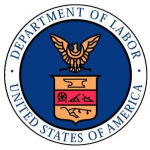- Industrie: Government; Labor
- Number of terms: 77176
- Number of blossaries: 0
- Company Profile:
Trade unions organized along lines of their skilled crafts. They formed the base of the American Federation of Labor.
Industry:Labor
Syndicalism comes from the French word for union "syndicat. " Syndicalists believe unions should run the economy. The term is associated with the Industrial Workers of the World. Half the states just after World War I passed criminal syndicalist laws. In California a person could be convicted for having once belonged to the IWW. In New Mexico, an employer could be prosecuted for hiring an "anarchist. "
Industry:Labor
President John F. Kennedy issued this Executive Order which recognized the right of federal employees to bargain with management.
Industry:Labor
The Consumer Price Index prepared by the U. S. Bureau of Labor Statistics. The Index measures changes in the cost of living month by month, year by year.
Industry:Labor
An attempt by an impartial third party to reconcile differences between labor and management.
Industry:Labor
The Philadelphia cordwainers' case in 1806 and subsequent decisions involving labor disputes declared unions to be unlawful conspiracies. In 1842 the court decision in Commonwealth v. Hunt said that under certain circumstances unions were lawful.
Industry:Labor
The hiring and employment of union members only. Illegal under the Taft Hartley Act.
Industry:Labor
The determination of wages and other conditions of employment by direct negotiations between the union and employer.
Industry:Labor
A store operated by a company for its employees. Often prices were higher here than elsewhere. Occasionally, workers were paid in script redeemable only at the company store.
Industry:Labor
An employee association organized, controlled, and financed by the employer. Outlawed by the National Labor Relations Act.
Industry:Labor
